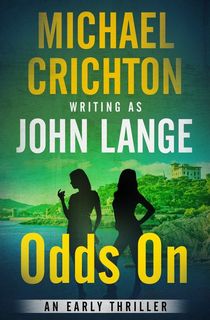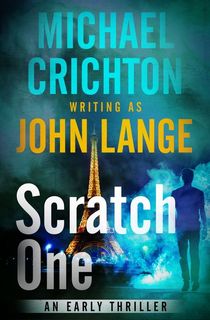HBO’s Westworld has been a phenomenal success, but few know the history behind the hit. The first installment in the Westworld franchise – and the inspiration for the HBO series – came way back in 1973. The original film, which was written and directed by Michael Crichton, takes place at a Western-themed amusement park filled with androids that malfunction and begin murdering the human visitors, much like the HBO series. The popular movie was the very first to use digital image processing and changed filmmaking forever.
A sequel, Futureland, was released in 1976 and takes place two years after the events of Westworld—following the opening of four new parks: Spaworld, Mediavelworld, Romanworld, and Futureworld. Crichton has no involvement in Futureworld, and the film was not well received. Regardless, it was followed by a 1980 TV series, entitled Beyond Westworld, which was short-lived. The franchise easily could have ended there, but Westworld had already had a massive cultural impact and was referenced in everything from The Simpsons to Iron Man 3. With the HBO series, which began airing in 2016, the futuristic theme park finally found its footing again.
SPOILER ALERT: The successful TV series is now on its second season, which picks up after the massacre of the Delos Inc. board members. Delos Inc. is the company that owns Westworld and five other theme parks. The second season, titled The Door, is effectively a sequel to the film—with the first season re-creating much of the original movie’s plot. In The Door, we begin to question who is human and who is a host—the androids that populate the park. Is William human or host? Is there really a difference? Is there a chance that technology has advanced to the degree that it can control humans? Why else would Delos be scanning the brains of every visitor if not for some sort of mind control scheme?

Maeve Millay (played by Thandie Newton) in the second season of Westworld.
Photo Credit: HBORELATED: 7 Gripping Shows Like Westworld
In general, the show stays fairly loyal to the original film—there is a virus in the hosts, the park is modeled after the American Old West, and the inventors have too much hubris. One stark difference is the point of view. In the film, the human visitors, John and Peter, are the focus. The show, on the other hand, tends to focus more on the hosts, especially Dolores. In fact, there are no notable visitors to the park—apart from William. We really only get to know the robots and various employees of Delos.
Another prominent difference is the focus on the western themed park in the HBO series. In the original movie, the guests had access to three different worlds: Westworld, Medievalworld, and Romanworld. In the series, there are six different parks, but we’re only privy to a few…for now. At the very heart, however, HBO’s Westworld is loyal to the film.
Despite being the very first feature film Crichton directed, his Westworld was praised by critics. Though he did not initially want his directorial debut to be a sci-fi film, Crichton was able to capitalize on his already-successful career as a sci-fi author to gain attention from studios. Prior directing the film, Crichton had directed one TV movie, but his primary focus was on his career as a novelist at the time.
RELATED: Michael Crichton: Fun Facts About the Jurassic Park Author
Crichton began his career at the age of 14 when The New York Times published a travel piece he wrote about a family vacation to Arizona. As a student at Harvard, he was discouraged by harsh criticism from a literature professor and ultimately went to medical school. But he didn’t stop writing. Crichton wrote novels as a way to pay for his expenses as a student. The author published a series of novels under two pseudonyms: John Lange and Jeffrey Hudson. He used the pseudonyms so his patients wouldn’t worry about appearing in his next novel. As Lange, he wrote a series of books that are now known as The Med School Years Collection. The first of the series was Odds On, the story of an attempted robbery that was planned using a futuristic computer program. In the second, Scratch One, a womanizing lawyer is mistakenly arrested for multiple assassinations.
In his final year of medical school, Crichton published The Andromeda Strain under his real name. The thriller, which tells the story of scientists who are investigating an outbreak of a deadly microorganism, established Crichton’s knack for science fiction, and its film adaptation swiftly introduced him to the world of film.
Surprisingly, Westworld was not based on one of Crichton’s highly-acclaimed novels. He wrote it directly for the screen, claiming that it was too visual of a story to work as a book. This might come as a bit of a shock to Crichton fans familiar with his other work. One of his most notable is Jurassic Park, which was adapted into a very successful film series—a series that’s still being made with a new Jurassic World franchise. Jurassic Park is remarkably similar to Westworld, but instead of killer androids…there are dinosaurs.
Additionally, Crichton is well-known for the sci-fi adventure novel Congo, which was also adapted to film. In the book, eight American geologists are murdered while working on a project in the Congo. When headquarters back in Houston sees the video recordings of their brutal murders, it becomes apparent that their killer wasn’t quite human. A new expedition sets out to discover the truth and find the Lost City of Zinj, which might hold the secret.
It’s clear that Michael Crichton has had an incredible influence on the sci-fi genre—through both literature and film. Though the author passed away in 2008, his stories live on and will continue to engross audiences for years to come.
Feature images: Still from "Westworld" (1973) via MGM; photo of Michael Crichton via Alchetron; Still from "Westworld" (2016) via HBO.
This post is sponsored by Open Road Media. Thank you for supporting our partners, who make it possible for The Portalist to continue publishing the stellar stories you love.





